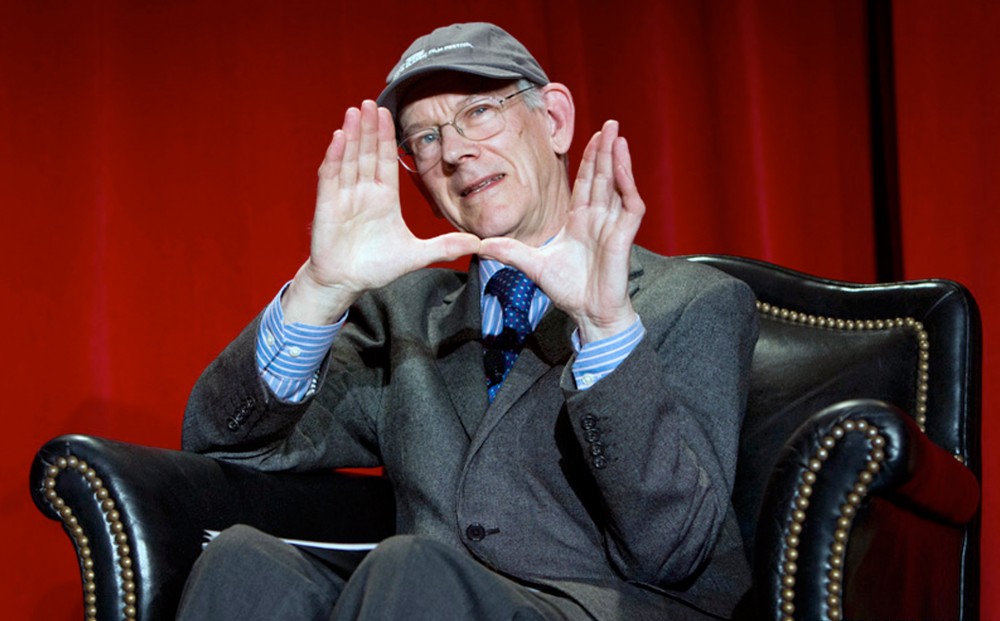Better Late Than Never, Film Forum Offers Chances To Get To Know the Work of Kevin Brownlow

If Kevin Brownlow can’t be counted as a renaissance man, he nonetheless wears more hats than most of us can claim. Sure, Mr. Brownlow’s purview is the movies, but he comes at it from a number of angles: as filmmaker, author, preservationist, historian, Oscar winner, and—if his efforts in restoring Abel Gance’s *Napoleon* (1929) are an indication—an indefatigable optimist with the patience of Job.
Casual cinema-goers will need patience, too, should they decide to attend the screening of *Napoleon* that will be held at Film Forum as part of a series of films honoring Mr. Brownlow. Coming in at five and a half hours, Gance’s epic will test the mettle of the most devoted film scholar.
Should you hesitate in making room for a day at the movies, consider that a French director, Georges Mourier, has done additional restoration on *Napoleon* and added another 90 minutes. You’ll be getting off easy with Mr. Brownlow’s version.
*Kevin Brownlow* comes five years after its initial scheduling, having been waylaid by the pandemic. Over the next few weeks, Film Forum will be hosting a run of pictures that honor Mr. Brownlow’s efforts as documentarian and director, as well as films that had a decisive impact on his aesthetic.
Given that the estimable historian has devoted a significant part of his career to silent cinema, New Yorkers will be able to take in films starring, among others, Douglas Fairbanks Sr., Lon Chaney, and Harold Lloyd.
Mr. Brownlow’s 1968 book, *The Parade’s Gone By*, is a lodestar of film history—an enthusiast’s encomium to pre-talkie cinema. Although the author was too young to directly experience the silent era—a chronological fate Mr. Brownlow likely rues—he was able to interview those who were still on hand in the 1960s, including Mary Pickford, Gloria Swanson, and Buster Keaton.
Chapters are devoted to the craft of filmmaking and specific movies like Allan Dwan’s *Robin Hood* (1923) and Cecil B. DeMille’s first go at *The Ten Commandments* (1923). The book has never been out of print.
A three-part series Mr. Brownlow made with fellow historian David Gill, *Unknown Chaplin* (1983), should be manna for aficionados of film comedy. Narrated by James Mason, the programs feature rare footage gathered from the comic’s widow, Oona O’Neill Chaplin.
Among the topics highlighted are Chaplin’s cunning use of trick photography, his exhaustive working methods, and a seven-minute excerpt that didn’t make the final cut of *City Lights* (1931). Chaplin was right to expunge the scene, but it goes to show how exacting he was as a filmmaker.
Among the most curious pictures on view is *It Happened Here* (1964), a black-and-white fantasy written and directed by Mr. Brownlow and Andrew Mollo. Over the course of eight years, the then-teenage filmmakers imagined a Great Britain that had surrendered to Germany and was under occupation.
It’s a scrappy effort, and rough edges are plain to see in its early minutes. With the subsequent aid of directors Stanley Kubrick and Tony Richardson, the boys pulled together a movie that suggests not only that evil is banal, but that bureaucracy is its primary mover.
Notwithstanding clunky moments of explication and off-the-rack actors—hundreds of them, few of whom were professional, and most of them volunteers—*It Happened Here* is smartly crafted and choreographed.
Set in 1944–45, the story follows the travels of an apolitical Irish nurse, Pauline (Pauline Murray), who, in trying to get by, becomes a collaborator. The Nazi propaganda machine is incessant, and Pauline begins to buy into it. But then she’s transferred to a country hospital whose idyllic surroundings belie a darker purpose.
Pauline is captured by the British resistance and is drafted into treating the wounded. Through it all, she remains fast and stoic, an observer of the new regime whose skepticism and dismay gradually increase.
All the while, Mr. Brownlow and Gill bring a starkly poetic eye to limning the moral capitulations that sometimes come with war. *It Happened Here* ends on an abrupt and discomfiting note that, nonetheless, rings true for a dour, involving, and fascinating film.
https://www.nysun.com/article/better-late-than-never-film-forum-offers-chances-to-get-to-know-the-work-of-kevin-brownlow






